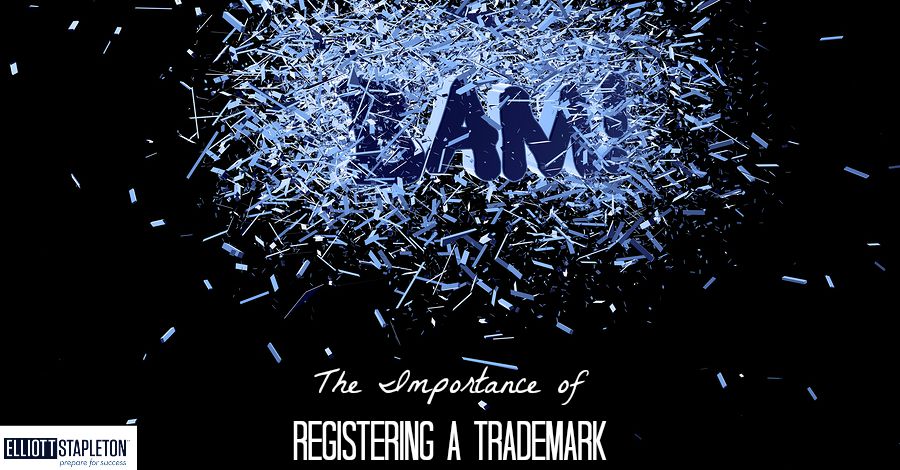|
I enjoy cooking dinner for my wife and daughter, and I yell “Bam!” with every ingredient I add. I cut up garlic (Bam!), onions (Bam! Sniff...), and sauté them in a little bit of olive oil (Bam!). The problem is that I was doing this way before I had heard of the chef named Emeril Lagasse. It turns out that Emeril also likes to dramatize each ingredient, but he was just smart enough to register his emphatic use of the word “Bam!” as a trademark. This was disappointing to me because I also like to yell “Bam!” during any sporting event I participate in, or when I put a tip in a tip jar, or when I give a police officer my driver’s license.
In fact, most of the previous statements I just made were untrue. They were meant to incite readers to think “seriously, how has he never heard of Emeril Lagasse’s “Bam!”? I would venture to guess that most people will recognize Emeril’s “Bam!” for many years to come, and this illustrates a key point; an effective trademark can sky rocket a business to the front of its competition by attaching a recognizable brand to a product or company. An effective federal registration can also prevent other businesses from confusing your customers, secure a nationwide monopoly in the name, and prevent others from misappropriating your company’s goodwill. So how does one go about obtaining a trademark? Obviously creating a catchy, recognizable trademark is the first step in a surprisingly complicated process. Let’s say presidential hopeful Donald Trump wants to register his immense, thinning comb-over hairdo as the “American Politician Haircut of Tomorrow”. After he successfully registered the phrase “You’re Fired” as a trademark, Donald Trump has realized the key to successfully protecting a trademark is effective federal registration of said trademark. While it is possible to register without the help of an attorney, the fact is your chances of successfully registering a trademark improve dramatically with an attorney involved. I very rarely use statistics to validate my claims (because sometimes just making things up is easier) but in this case the empirical data shows a significant increase in successful filings when a trademark attorney is involved. So if Donald Trump uses a trademark attorney to successfully register the name of his awful hairdo as a trademark, then people won’t be able to call their immense, thinning comb-over hairdos the “American Politician Haircut of Tomorrow.” For me the key to deciding how to proceed with this process was the cost/risk ratio. It costs hundreds of dollars of non-refundable money to file a trademark application. If an application is not filled-out impeccably, the application is thrown out and the money is lost. I think it is silly to risk repeated failed applications (at the risk of potentially losing hundreds of dollars of non-refundable filing fees) when a trademark attorney can use their wealth of knowledge to get it done right. That is why I walked into Elliott Stapleton’s office with my trademark idea and laid it on his desk with an emphatic “Bam!” If you have any questions on the information contained in this blog, see the business law website of Cincinnati attorney, Elliott Stapleton, with CMRS Law, 123 Boggs Lane, Cincinnati, Ohio 45246, or contact him at (513) 334-0099.  Legalzoom may have an excellent marketing strategy, but they are not a replacement for your Attorney. An Attorney is ethically bound to look out for your best interest above all else. Legalzoom exists to make a profit and if that means selling you every form they have (regardless of your needs) I assure you they will do it. Here is an article on the specific differences between a Licensed Attorney and LegalZoom. When forming an Ohio LLC, creating a Corporation, preparing contracts for your business, or registering trademarks it is imperative to obtain advice rather than relying on a reprinted form without understanding what it means, how to use it or which state it was intended to be used in. _ An individual, start-up business, or established company may have an idea or concept that is unique but not otherwise protectable by a patent. This can include a business model, formulas, recipes, processes, product concepts, marketing plans, unique sources for supplies, assembly processes, or customer lists (collectively referred to as “trade secrets”).
The protection of your trade secrets is essential to maintaining a competitive advantage. How can a start-up business protect its Trade Secrets? As the name suggests, the subject of a trade secret must remain secret and there must be adequate measures to protect the secrecy. That means it must not be public knowledge or of general knowledge in the trade or industry. If the secret is disclosed through authorized means or there are not adequate measures to guard the secrecy competitors can take advantage of the trade secret. But if there is an unauthorized disclosure and use of a trade secret, there are strict criminal and civil penalties. (Note: If you are an employee, it is important not to disclose a trade secret, here is a summary of the criminal risk) What are adequate measures for protecting a Trade Secret? While there are no fixed rules as to what are “adequate” measures, there are best practices that must always be followed: 1. Never disclose confidential information, to anyone who has not signed a nondisclosure agreement or without a confidential relationship. 2. Have password protection on all software that contains Trade secrets and limit an employee or contractor’s ability to place the trade secrets on a personal computer. 3. Maintain a policy that all business records must be returned after separation with an employee or contractor. 4. Never disclose any aspect of the trade secret publicly. The best practice to ensure your trade secrets are protected is to conduct an annual audit. Through this process, you can identify your trade secrets, determine the steps that can be taken to protect their secrecy, update your company passwords, and test your security measures. Yes. A registered Trademark can be assigned or transferred; subject to some restrictions on Intent-to-Use applications. Assignments must be recorded with the United States Patent and Trademark office.
If a business is sold, in full, the Trademark will be transferred along with the company. If, however, the sale is an asset purchase agreement, an assignment will be necessary; this type of asset will typically be referred to as intangible property or Goodwill. Can you simply change the spelling of a word to distinguish it from an existing Trademark?5/14/2011
If you are filing for a Federal Trademark and the same mark is already registered, simply changing the spelling will not, automatically, differentiate you from the other company.
When there is an alternative spelling or intentionally changed version of an English word, the Trademark examiner will conduct a pseudo mark search of existing Trademarks. This pseudo mark search locates spellings that are very similar or phonetically equivalent to your proposed Trademark. (For example: Kat & Cat would be interpreted as the same mark). The best practice is to create a name that does not illicit comparisons to another company. Google offers a free service called Google Alerts. This service allows you to monitor when your name or your company's name is used online. You can have instant results each time the word or phrase is used online and indexed by Google.
This information will allow you to act quickly if there is infringement or if there is an unauthorized use of your company’s Trademark. Here is a link to the free service: http://www.google.com/alerts A Trademark is a distinctive word, symbol, phrase, design, or combination of the same, that allows customers to identify the source of goods or services. This allows customers to decipher one product from another when making a decision to purchase.
If you are providing services, you may have a service mark. Generally, the word “Trademark” is used to describe both trademarks for goods and service marks for services. Business owners are often excited about their new company. But before you invest in designing logos, printing business cards, or buying domain names you will want to make sure there is not a strong likelihood your selected name is going to infringe on another company's name.
You can do this a few different ways: 1) Search on Google using “____” around the name and other, similar name combinations; 2) Search on the United States Patent and Trademark Office website; and 3) Search the Ohio Secretary of State’s website under business name. This will give you a better idea of what is already in existence. The best practice is to file a Federal Trademark to provide the highest level of protection to your business. |
Elliott Stapleton Attorney with CMRS Law
|


 RSS Feed
RSS Feed